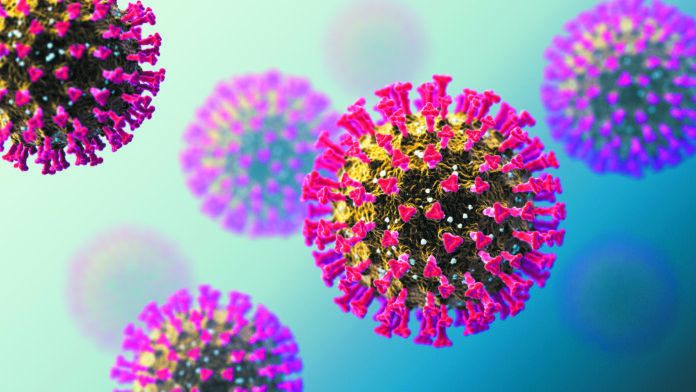Healthy Pre-Infection Lifestyle Associated with Lower Risk of “Long COVID”
The COVID-19 virus is here to stay. While new vaccines and treatments have cut the death rate considerably and severe disease and hospitalization are less common, the speed at which the virus mutates to create new varieties means reinfections will be a reality. A recent study found a healthy lifestyle prior to infection was associated with a substantially lower risk of developing post COVID conditions (also known as “long COVID”).
Over 32,000 women participating in the Nurses’ Health Study II were asked to self-report positive COVID tests and any occurrence of post COVID conditions lasting at least four weeks. These reports were compared to information on diet and other lifestyle behaviors reported in 2015 and 2017. A healthy pre-infection lifestyle was associated with a substantially lower risk of developing long COVID. Healthy lifestyle factors included a body mass index (BMI) of 18.5 to 24.9, never smoking, at least 150 minutes per week of moderate to vigorous physical activity, moderate alcohol intake (5 to 15 grams/day), high diet quality, and adequate sleep (7 to 9 hours/day).
This prospective study does not prove cause-and-effect. Healthy lifestyle choices are good for cardiometabolic and overall health. Perhaps increasing your healthy behaviors will also help you avoid lingering COVID symptoms.
Ultraprocessed Foods Associated with Increased Cancer Risk

Ultraprocessed foods (essentially those manufactured food products that contain few whole, natural ingredients) tend to be inexpensive, ready-to-eat, and often delicious. They are also increasingly associated with negative health effects.
A recent study analyzed the ultraprocessed food intake reported by nearly 200,000 people and compared it to cancer diagnoses over nine to 12 years of follow-up. Ultraprocessed foods made up nearly 23 percent of food intake on average. Consuming more ultraprocessed foods was associated with a higher incidence of cancer, particularly ovarian cancer. The researchers also found an association with death from cancer, especially ovarian and breast cancers.
While association does not prove cause and effect, overwhelming evidence from this and other studies suggests focusing on eating mainly whole and minimally processed foods is the best choice for health.
Regular Physical Activity Reduces Liver Fat and Type 2 Diabetes Risk

Even moderate activity may decrease liver fat and type 2 diabetes risk.
A decade ago, two hundred and eight participants completed a one-year supervised intervention of either vigorous aerobic activity (150 minutes of jogging per week for six months followed by 150 minutes per week of brisk walking for another six months) or moderate aerobic activity (brisk walking for 150 minutes every week). A control group did not participate in a physical activity program. Participants were instructed not to change their dietary intake. In addition to reduced levels of fat in the liver, (NAFLD, see page 4) both activity groups showed a significant reduction in body weight, waist circumference, and blood pressure at the end of the one-year trial period.
Ten years later, there was no significant difference among the three groups in time spent engaging in physical activity, but the risk of type 2 diabetes was 49 percent lower in the groupt that had participated in vigorous activity and 53 percent lower in the moderate activity group compared to the controls. This study suggests both moderate and vigorous physical activity can produce long-term beneficial effects on the risk of developing type 2 diabetes with advancing age, particularly in individuals with NAFLD or central obesity. Move as much as you can as often as you can for long-term cardiometabolic health!
Type of Carbs Associated with Cardiovascular Disease, Not Quantity
The UK Biobank contains in-depth genetic and health information from half a million participants. A study that analyzed data from over 110,000 of these records reinforced the observation that some types of carbohydrate rich foods have negative health effects, and some positive.
Participants were free from cardiovascular disease (CVD) and diabetes at baseline. They had submitted at least two 24-hour dietary assessments to the Biobank. Researchers analyzed the types of carbohydrates in the reported dietary intake and tracked occurrences of CVD and stroke over more than nine years.
Total intake of carbohydrates was not associated with CVD risk. Carbs in the form of added sugars were associated with higher risk, as well as high blood triglyceride levels, (which raises risk for CVD). In contrast, consuming carbs naturally high in fiber (like whole grains and fruits) was associated with lower risk. The researchers concluded replacing refined grains and sweets with whole grains and fruit may be protective against CVD, including heart attack and stroke.
























